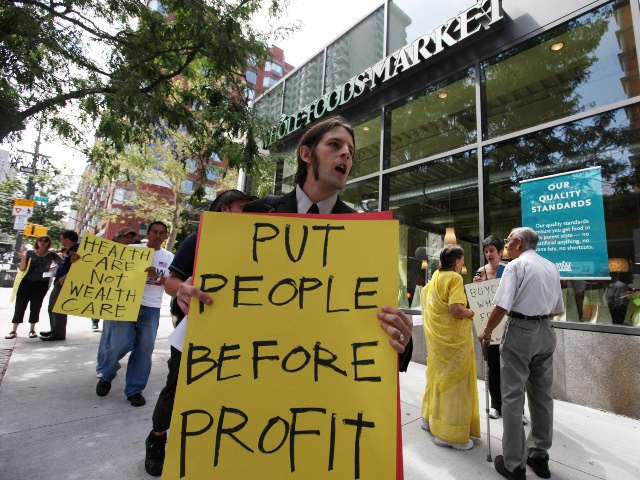Amazon executive Jeff Wilke, a 20-year veteran of the company, plans to retire next year, but not before completing one of his major projects — eliminating human cashiers at Whole Foods Market locations across the country.
The New York Post reports that top Amazon executive Jeff Wilke plans to retire early next year after working at the e-commerce giant for over 20 years. The announcement of Wilke’s retirement came in a securities filing on Friday, Wilke is reportedly stepping down by his own choice and will be succeeded by Fave Clark who currently serves as senior vice president for worldwide operations.
Before he leaves, however, Wilke reportedly plans to finish two projects at the company. The first one being the rollout of Amazon Go convenience stores which employ cashierless technology allowing customers to pay for items simply by walking out of the store rather than checking out at a register.
The larger project, according to a source close to Amazon, is to oversee the rollout of the high-powered sensors that power the cashierless tech to Whole Foods locations across the country. The source told the Post: “Amazon Go proved out the tech, but they can’t figure out how to make those stores profitable. But Whole Foods prints cash, and with healthy margins, too.”
The rollout is expected to begin in the second quarter fo 2021 shortly after Wilke’s retirement, according to sources. Amazon unveiled a new supermarket prototype earlier this year which relies more on technology than human laborers, a move that many see as a job-killing business model.
Amazon acquired Whole Foods in 2017. Since that time, the relationship between the grocery store chain and Jeff Bezos’ e-commerce giant haven’t always been rosy. Breitbart News reported in April that Amazon is carefully tracking the possibility of unionization of Whole Foods employees.
Business Insider reports that according to leaked internal documents and inside sources, Amazon-owned grocery store Whole Foods has been tracking and scoring stores it deems at risk of unionizing. Whole Foods scores each location on more than two dozen metrics including racial diversity, employee loyalty, “tipline” calls, and violations reported by the Occupational Safety and Health Administration (OSHA).
The company tracks local economic and demographic factors such as the local unemployment rate and the percentage of families in the area living below the poverty line. The stores’ scores are then fed into a “heatmap” which is a geographic map of the United States with red dots indicating high-risk Whole Foods stores.
Amazon’s stock price is up more than 80 percent since March when the coronavirus pandemic began which forced many worldwide to stay home, often turning to Amazon to fulfill their shopping needs.
Lucas Nolan is a reporter for Breitbart News covering issues of free speech and online censorship. Follow him on Twitter @LucasNolan or contact via secure email at the address lucasnolan@protonmail.com
